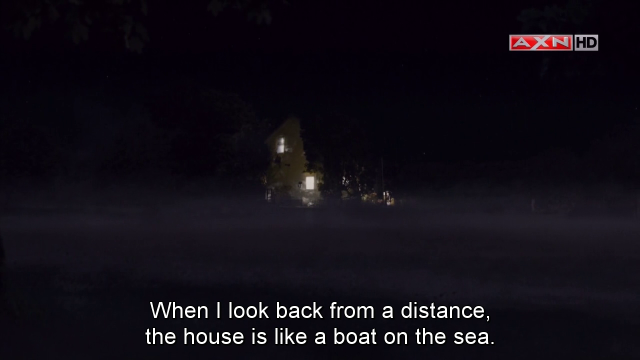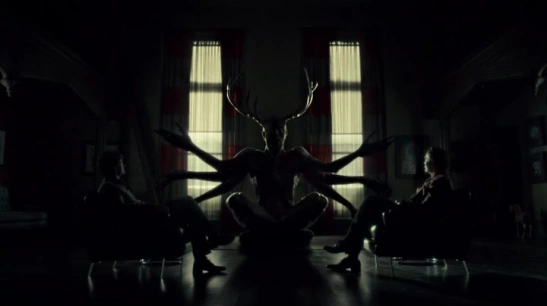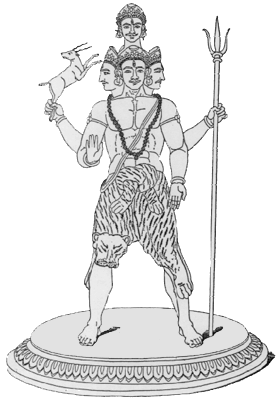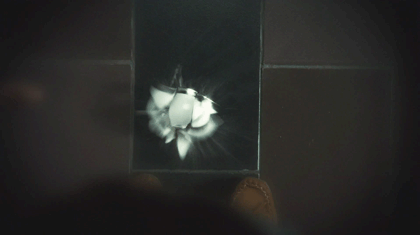
Η πρώτη συνειρμική εικόνα που μου έσκασε όταν έμαθα για την δολοφονία του Ζακ ήταν αυτή ενός Αμερικάνου 75χρονου να μιλάει στο Wild, wild country και να περιγράφει τον Δαίμονα που ήταν στα μάτια του η Ma Anand Sheela. Η Ινδή, μορφωμένη, σεξουαλικά απελευθερωμένη και δυναμική Sheela ήταν το απόλυτο σύμβολο του Άλλου για τον φιλήσυχο αυτόν 75χρονο οικογενειάρχη. Μιλούσε την γλώσσα του αλλά με Αλλη προφορά, είχε Άλλο χρώμα το δέρμα της, δεν τον φοβόταν -όπως είχε συνηθίσει να τον φοβάται η γυναίκα του- δεν ήταν Χριστιανή, ήταν spiritual αλλά αυτό το spirituality ήταν τόσο εξωτικό και μακρινό από εκείνον που δεν θα μπορούσε ποτέ να το καταλάβει, ήταν sex positive, έκανε σεξ με πολλούς άντρες και γυναίκες και δεν είχε κανένα πρόβλημα να μιλήσει για αυτό, δεν είχε οικογένεια, ή τουλάχιστον δεν είχε οικογένεια με την συμβατική της έννοια, η λίστα είναι ατέλειωτη…
Αν έχουμε μάθει κάτι από την ιστορία είναι ότι το Άλλο πάντα θα δαιμονοποιείται. Στην περίπτωση της Sheela το Άλλο έτυχε να είναι και ένα κοινωνιοπαθές άτομο, οπότε ναι μεν μας προκαλεί αποστροφή το μίσος που δέχτηκε επειδή ήταν γυναίκα, επειδή ήταν μορφωμένη, επειδή ήταν Ινδή, και επειδή ήταν σεξουαλικά απελευθερωμένη, αλλά ταυτόχρονα δυσκολευόμαστε να νιώσουμε και συμπάθεια για ένα άτομο που προσπάθησε να δηλητηριάσει τόσο κόσμο.
Με τον Ζακ όμως είναι αλλιώς τα πράγματα. Κι ο Ζακ συμβολίζει το Άλλο για τον κυρ Παντελή*, με κάθε τρόπο. Είναι οροθετικός, είναι γκέι, είναι θηλυπρεπής, είναι ντραγκ κουην, είναι χρήστης** – δεν θέλω να μπω σε συζήτηση για το θέμα της χρήσης ουσιών γιατί είναι τεράστια κουβέντα και σημαντικό να γίνει από άτομα που ξέρουν να το αναλύσουν καλύτερα από μένα, ιδανικά από άτομα με λόγο βιωματικό. Εγώ θα πω μόνο ότι καταλαβαίνω όσους φίλους του Ζακ έτρεξαν να υπερασπιστούν τον Ζακ στο θέμα αυτό, είτε γιατί το έκαναν επειδή ένιωσαν να παρουσιάζεται ο Ζακ ως ένα άτομο το οποίο δεν ήταν, οπότε ήθελαν να αποκατασταθεί η αλήθεια για το ποιος ήταν ο Ζακ, είτε γιατί ένιωσαν –με το δίκιο τους- ότι τα μ.μ.ε. εμμονικά αναφέρουν ξανά και ξανά το ότι είναι χρήστης ενώ κουκουλώνουν όλες τις υπόλοιπες ταυτότητες του Ζακ, όλο το ακτιβιστικό και καλλιτεχνικό του έργο. Χωρίς να το θέλουν, πέφτουν στην παγίδα των Respectability Politics, κάτι που ο Ζακ, έτσι όπως τουλάχιστον τον θυμάμαι εγώ, δεν θα το δεχόταν με τίποτα. Ο Ζακ, νομίζω, θα έλεγε, ότι είναι περήφανα πρεζάκι –ακόμα κι αν δεν ήταν τοξικοεξαρτημένος κ ήταν απλά περιστασιακός χρήστης. Εγώ έτσι τον θυμάμαι τον Ζακ, άνθρωπο που δε φοβόταν να ζήσει, να μιλήσει, και να υπερασπιστεί κάθε ευαίσθητη κοινωνική ομάδα. Πιστεύω – ή θέλω να πιστεύω- ότι δεν θα ήταν ποτέ σύμφωνος με αυτή την αφήγηση που λέει ότι ο Ζακ “δεν ήταν πρεζακι, ήταν ακτιβιστής”. Πιστεύω – ή θέλω να πιστεύω- ότι θα απαντούσε “γιατί δεν μπορώ να είμαι και τα δύο;”
Δεν έχει σημασία. Έτσι κ αλλιώς όταν λέω “ήταν χρήστης” το λέω μόνο γιατί με ενδιαφέρει στο πλαίσιο της συγκεκριμένης συζήτησης, του τι συμβόλιζε δηλαδή για τον κυρ Παντελή ο Ζακ. Για τον κυρ Παντελή λοιπόν o Zακ συμβολίζει το Άλλο, ένα σύνολο αρχετύπων δηλαδή, (το Τέρας, ο Διάβολος, ο Μπαμπούλας) κι ένα σύνολο στερεοτύπων (το φτωχό ζάκι, ο ληστής, ο γκέι oροθετικός). Είναι πιο εύκολο, φαίνεται, να δολοφονήσεις έναν άνθρωπο όταν καταφέρεις πρώτα να τον δεις σαν αρχέτυπο/στερεότυπο κι όχι σαν πραγματικό άνθρωπο (dehumanisation το λένε).
Γίνεται όμως άνθρωπος που αγάπησε και αγαπήθηκε τόσο πολύ, που βοήθησε τόσο κόσμο με το ακτιβιστικό και εθελοντικό του έργο, που άγγιξε χιλιάδες ανθρώπων, να χωρέσει σε ένα dehumanizing στερεότυπο; Ειδικά όταν όλες αυτές οι χιλιάδες ανθρώπων συμφωνούν σε ένα πράγμα:
O Zακ δεν θα πείραζε ποτέ ούτε μύγα. Ο Ζακ ήταν άνθρωπος καλός.
Τώρα φανταστείτε ότι είστε ο κυρ Παντελής*. Φανταστείτε ότι έχετε δολοφονήσει έναν καλό άνθρωπο επειδή τον φοβηθήκατε – προσοχή, δεν τον φοβηθήκατε γιατί φοβηθήκατε για την ζωή σας. Τον φοβηθήκατε γιατί είναι ο Μπαμπούλας σας. Γιατί είναι σύμβολο του Άλλου, του Ξένου. Έχετε λοιπόν δολοφονήσει έναν καλό άνθρωπο και τώρα πρέπει κάπως να προστατεύσετε το Εγώ σας από συνεχή χτυπήματα σε αυτό. Όσο ακούτε λοιπόν ανθρώπους να λένε ότι ο Ζακ ήταν άνθρωπος καλός, αναγκάζεστε να χρησιμοποιήσετε έναν σωρό ψυχολογικούς αμυντικούς μηχανισμούς – κυρίως την άρνηση και την εκλογίκευση- για να δικαιολογήσετε το αποτρόπαιο έγκλημά σας. Εσάς, κύριε Παντελή σας καταλαβαίνω. Εννοώ, μπορώ να ερμηνεύσω τη συμπεριφορά σας πολύ εύκολα. Μπορώ να καταλάβω την ανάγκη σας να τσακίσετε τον Ζακ σαν σύμβολο, την ανάγκη σας να τον δολοφονήσετε ξανά και ξανά – τα Τέρατα στις ταινίες πεθαίνουν πιο δύσκολα, άλλωστε, δεν πεθαίνουν με λίγες κλωτσιές, άσε που συχνά επιστρέφουν σαν απέθαντα ζόμπι-, την ανάγκη σας να χέζετε ακόμα και στον τάφο του και να γράφετε στη σελίδα του ένα σωρό υβριστικά σχόλια. Καταλαβαίνω ότι είναι αναγκαίο για την ψυχική σας ισορροπία ο Ζακ να είναι όντως Τέρας, γιατί αν δεν είναι ο Ζακ το Τέρας… ε, τότε το Τέρας είστε εσείς.
Κυρ Παντελή, αυτούς που δεν θα καταλάβω ποτέ είναι αυτούς που σας σιγοντάρουν χωρίς να αποδέχονται ποτέ ότι φοβούνται και μισούν το Άλλο όσο εσείς. Αυτούς όλους που το παίζουν αφελείς ή ορθολογιστές και λένε “ψυχραιμία, παιδιά” “μην προτρέχουμε, δεν ξέρουμε ακόμα τι συνέβη”,“μα δεν ξέρουμε αν όντως ήταν hate crime, αν έχει ρατσιστικο υπόβαθρο το έγκλημα”, “μην δημιουργούμε θεωρίες συνωμοσίας τώρα” ακόμα και αφού έχουν διαβάσει τα ομοφοβικά tweets του ενός δολοφόνου

και έχουν δει τους φασίστες να μαζεύονται έξω από το μαγαζάκι σας και να φωνάζουν “πρεζακια και γκέι δεν είστε αναγκαίοι” και “ δεν έχει το δικαιωμα η κάθε αδελφή στο μαγαζί να μπαίνει του βιοπαλαιστή” ενώ ταυτόχρονα πετούν φυλλάδια με παρόμοιο υλικό.
Με αυτούς είμαι πιο καχύποπτη, κυρ Παντελή*. Γιατί εσύ ξέρω τι φοβάσαι, ξέρω τι τρέμεις, ξέρω τι μισείς. Η συμπεριφορά όμως αυτών των “ψύχραιμων” ενώ βλέπουν τον κόσμο μας να καίγεται, αυτή μου φαίνεται εντελώς αψυχολόγητη.
Kαι πραγματικά, ολοκληρωτικά ανήθικη.
*Όπου “κυρ Παντελής” θέλω να σκέφτεστε “μέσος Έλληνας”, γιατί πιστεύω ειλικρινά ότι τον Ζακ θα τον δολοφονούσε ο καθένας αν του δινόταν η ευκαιρία.
** Το κείμενο γράφτηκε πριν βγουν τα αποτελέσματα από τις τοξικολογικές του Ζακ. Δεν το κανω edit το “είναι χρήστης” γιατί συνεχίζω να πιστεύω ότι ο Ζακ θα ήταν σύμφωνος με όσα έχω γράψει εδώ.





















